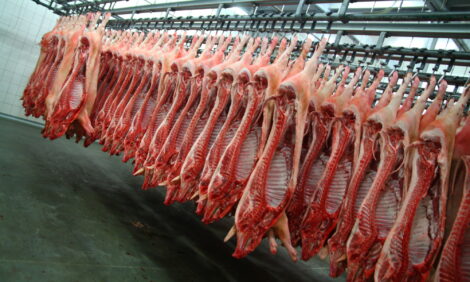



Experts Discuss Diagnosis of PCVD
At this year's PCVD Forum sponsored by Merial, two European experts in the field of diagnosis discussed methods for testing porcine circovirus disease (PCVD), writes Jackie Linden for ThePigSiteExpert Urges Caution with Serological Tests for Diagnosis
What kind of question can be answered by serological tests?" asked Luc Mieli, head of the serology unit in France's leading swine diagnostic laboratory.
"The answer," he said, "is a number of things but not a PCVD diagnosis."
He presented a validation study, carried out by Merial, of a quantitative porcine circovirus type 2 (PCV2)-blocking ELISA from Synbiotics.
This kit was shown to be efficient as it has a variation of 30 per cent, which is considered normal for a top-performing ELISA, explained Dr Mieli. He added that for an inhibition of haemagglutination assay, one must allow 100 per cent variation.
However, results have to be interpreted with caution, he explained.
"In the breeding herd, it can be useful to assess the quality of sow vaccination, but please be careful with serological interpretation in piglets," he warned.
Quantitative PCR is Useful for PCVD Diagnosis
Conventional (qualitative) PCR is generally used for the initial detection of PCV2. It can also be useful for genome differentiation and sequencing but it showed not be used on its own for diagnosis, warned Tamás Tuboly (SZIU in Hungary).
Quantitative PCR, (qPCR), on the other hand, is more suitable for PCVD diagnosis, he explained, but it must be used with care, as a wide range of values may be obtained for both healthy and diseased animals.
"You can only make a conclusion if high DNA loads are detected, provided proper controls are included in the assay," he said.
Also qPCR bears less contamination risk, which may be a source of false positive results.
"Depending on the biologists' expertise, qPCR may even differentiate variants according to melting characteristics," Dr Tuboly said.
Furthermore, the presence of either PCV2 genotypes (a or b) in a given sample does not affect the results of either of these PCR assays, he concluded.
Further Reading
| - | Find out more information on Post-Weaning Multisystemic Wasting Syndrome (PMWS) by clicking here. |
December 2009









